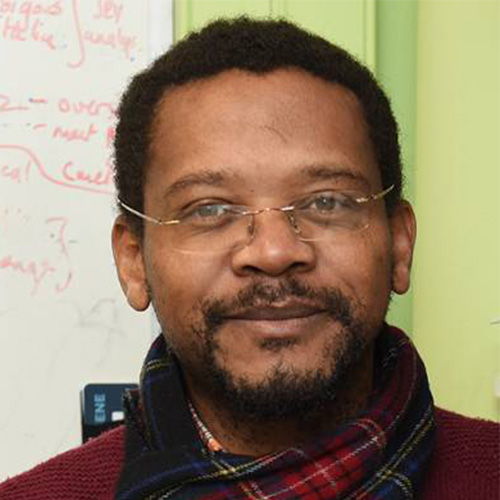
Ambroise Wonkam
Country (Nationality)
Cameroon
Grantee Title
Hearing Impairment Genetics Studies in Africa (HI-GENES Africa)
Grantee Description
After a MD training from University of Yaoundé I in Cameroon, he completed a thesis in cell biology and a medical genetics specialist training at University of Geneva in Switzerland, and a PhD in human genetics at South Africa’s University of Cape Town. He is currently a Professor at South Africa’s University of Cape Town.
His research interests are reflected in more than 100 peer-reviewed publications, which are in molecular, clinical, and ethical aspects of medical and human genetics; funded by numerous US National Institutes of Health and Welcome Trust grants, with specific focus on sickle cell disease, hearing impairment and incidental findings in genomic research in Africa.
He won the competitive Clinical Genetics Society International Award for 2014 from the British Society of Genetic Medicine. Prof Wonkam is Secretary of the African Society of Human Genetics, board member of the International Federation of Human Genetics Societies, council member of the Human Genome Organization and steering committee member of the Global Genetic Medicine Collaborative (G2MC).
Hearing Impairment Genetics Studies in Africa (HI-GENES Africa)
Hearing impairment remains the most disabling congenital disease, with higher burden in Africa. Congenital hearing impairment occurs in 6 per 1000 new-born in Africa. Early diagnosis and interventions for children with hearing impairment is recommended to maximise their cognitive, social-emotional, speech and language development. Half of congenital hearing impairment cases have a genetic aetiology, of which 70% are isolated and referred as non-syndromic (NS).
Despite a large number of identified genes, only two (GJB2 and GJB6) have been systematically studied in sub-Saharan Africans, for which prevalence of NSHI (non syndromic hearing impairment)-causal variants is close to zero. We estimated that known NSHI genes only explain ~4.1% of NSHI in African-Americans.
The HI-GENES Africa programme proposes to use whole genome sequencing (WES), to study the largest sample of sub-Saharan Africans from Cameroon, Mali, Ghana, and South Africa with prelingual NSHI, in order to identify novel NSHI genes and to better understand the genetic aetiology of NSHI in African populations. We will also engage policies makers, and support groups on psychosocial challenges experienced by families and people living with HI.
HI-GENES Africa has high public health significance, since it will specifically improve genetic diagnosis, and future prediction of treatment outcomes in sub-Saharan Africans, and people of African descent. The research vision of HI-GENES Africa is to become the network that facilitates diagnosis, care, and quality of life of people living with hearing impairment, aligned with best standards.
